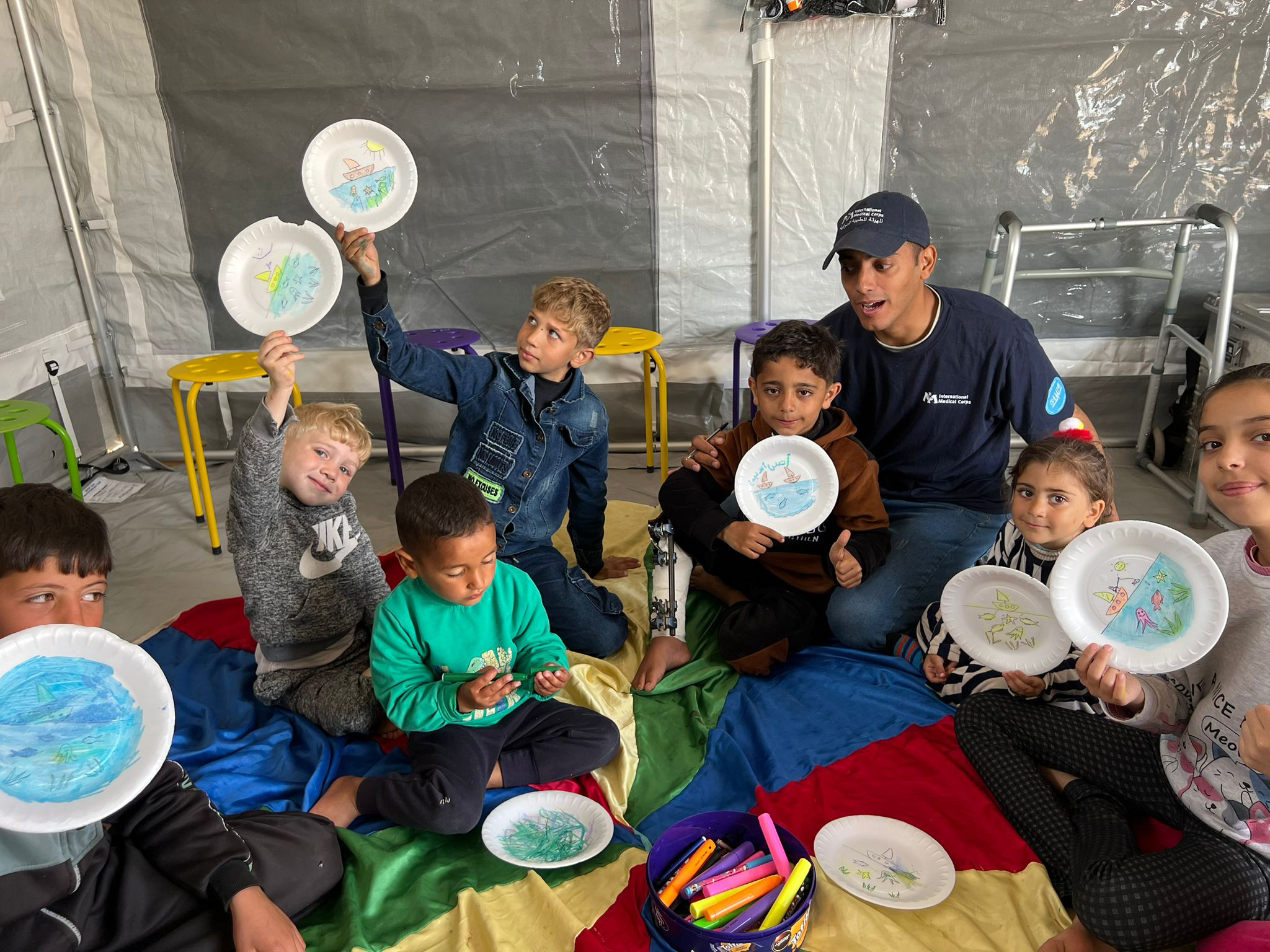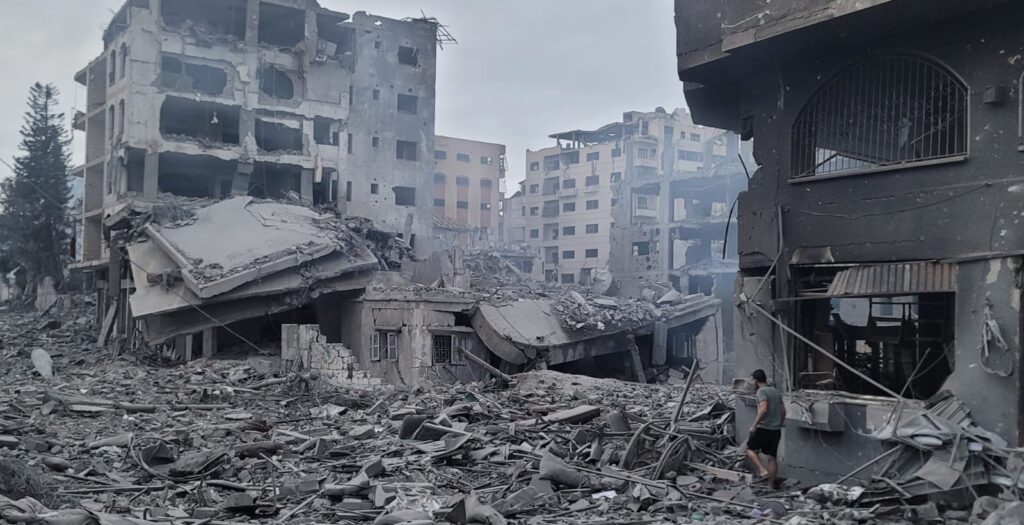Halima—a 43-year-old Gazan woman—is one of the 280 million people worldwide who live with depression. Before the outbreak of the Israel-Hamas war in October 2023, she managed her mental health condition using anti-depressants. Life wasn’t easy, but the medication helped her care for her four children and make a living selling homemade cleaning products out of her home.
Then the war started. Her home city of Khan Younis was reduced to rubble in the attacks, forcing Halima, her husband and their four children to move into a tiny tent near Rafah, in the south of Gaza. The family of six and their tent—barely bigger than 2×2 meters—were surrounded by hundreds of thousands of other Palestinians who had nowhere else to go.
The family was fortunate to have survived uninjured—but Halima had another urgent problem. She had run out of anti-depressants. Deliveries of medicines and other supplies into Gaza had been disrupted by the conflict, and despite a frantic search, Halima and her husband couldn’t find any organisations with a supply. Without her medication, Halima could no longer care for herself or her family. She sank deeper and deeper into depression.
Since the escalation of the conflict, International Medical Corps has established two fully equipped field hospitals in Gaza, where we provide a range of lifesaving medical services alongside integrated nutrition services, child-protection services, gender-based violence prevention and support services, and facilities and services related to water, sanitation and hygiene. But these crucial efforts represent only part of our work. As one of the few global humanitarian organisations with experts focused on providing mental health and psychosocial support (MHPSS) in humanitarian contexts, we also provide psychological first aid, MHPSS case management, individual counselling, group therapy and psychosocial support activities for adults and children at our field hospitals.
“Conflict can significantly impact people’s mental health,” says Abdel Karim Khader, an MHPSS Global Advisor at International Medical Corps. “Prioritising mental health and psychosocial support during times of conflict can dramatically improve individuals’ well-being, help them navigate daily challenges and bolster community resilience.”

Halima first came to the field hospital with her daughter, whom she feared was suffering from malnutrition. However, as Halima waited in the reception area, she learned about the MHPSS services offered by International Medical Corps. Once our staff had screened and cared for her daughter, Halima approached the MHPSS team to help herself.
After performing a comprehensive psychological assessment, our MHPSS case manager referred Halima to a local association for women’s and children’s protection, which was able to provide immediate assistance. Our team helped her plan her journey to the organisation’s temporary location near Rafah, providing logistical and safety support and even covering her transportation costs.
This local organisation had some access to a limited stock of medications recovered from now non-operational health facilities and other sources. Fortunately, this included anti-depressants, which they prescribed to Halima.
An International Medical Corps psychosocial worker also gave Halima psychological counselling, talking with her about stress management and crisis intervention. Our MHPSS team is continuing to monitor Halima’s response to her treatment.
These urgent interventions changed everything for Halima and her family. Halima is responding well to the medication and the counselling, and now feels stronger and more able to face her challenging situation. She has even resumed selling homemade cleaning products from her tent to generate extra income for her family.
“This help came when I thought all was lost,” Halima told our team. “I can now look after my children and myself again. I feel like I have been given a second chance at life.”
Like other residents of the Gaza Strip, Halima’s future remains uncertain. She still has no home and no idea of when her family will be safe again. But unlike before, she now has hope.
“When our team saw Halima smile again—knowing the darkness she’s come through—that’s what motivates us to do the work we do,” says Abdel Karim Khader. “Despite the immense challenges, her story reaffirms the importance of MHPSS services in a crisis and the impact they can have.”
Your donations make a difference. To help people like Halima around the world, donate to International Medical Corps today.
